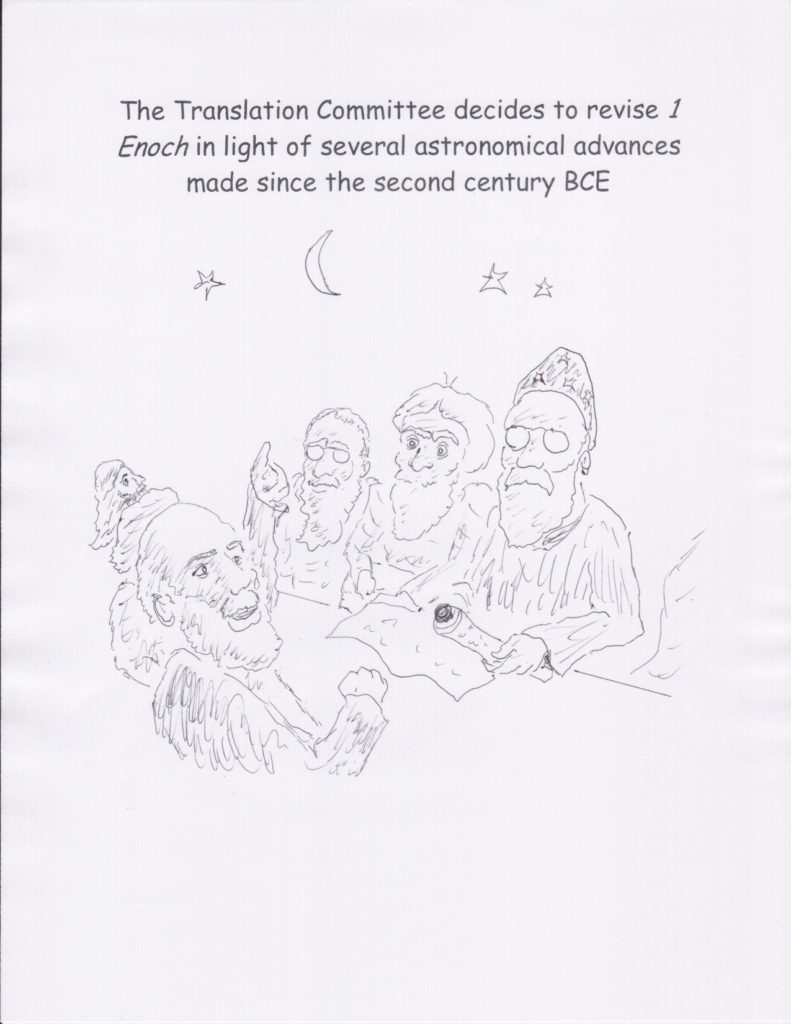Continued from part 1 (http://www.craigkeener.org/?p=4282)
The
perfect forever versus the limited present
Again
putting the gifts in context, in 1 Cor 13:8-13, Paul emphasizes that the gifts are
only for the present time, whereas love is eternal. The gifts are partial, so
we will not need them when we enjoy the fulness of God’s presence. I won’t need
someone to prophetically correct my faults when I no longer have faults. I
won’t need to study for my Bible exams when I know fully as I am known.
Paul
offers three key examples of gifts that he elsewhere highlights in this letter:
prophecies, tongues and knowledge (13:8-10) From 1 Cor 1:5, we see that the Corinthians
highly valued knowledge, along with speech (1:5). Their culture helped make
such gifts appealing: the rest of Corinth highly valued philosophy (“wisdom”)
and rhetoric (oratory). But whether in Corinth or for us today, especially for
those of us who teach others, loving others matters more than boasting in
theological knowledge (8:1-3, 7, 10-11). If we use our knowledge to show
students how smart we are, to make them feel inferior, or worst of all to cause
these little ones to stumble, we abuse our gift.
People
debate about the meaning of “word of knowledge” in 1 Cor 12:8. The tradition
that has commonly arisen in charismatic circles is that it applies to special
knowledge of someone’s sickness, sin, or the like. Certainly God can do that,
and that sort of insight appears in many biblical examples. More often,
however, the Bible would present that as an expression of prophecy.
“Word
of knowledge” in 1 Cor 12:8 uses the same Greek words as “speech” and knowledge
in 1:5, and probably refers to speaking knowledgeably (related to gift of
teaching; 12:28-29; 14:6). We dare not boast in this gift, for one day it will
pass away. When Jesus returns, I will no longer be a teacher; everyone will
know the Lord equally (cf. Jer 31:34). I have the gift now to serve Christ’s
body, but it is not my eternal identity. One time when I was worshiping I felt
like God was commending me for my diligent labors for him. But then I felt
something far more beautiful: I will not always be a teacher, or this gift or
that gift. But I will always be his son. Love is forever.
The
gifts pass away at Jesus’s return (13:8, 10, 12) not because they are bad or in
the present unnecessary. They pass away because they are surpassed by something
infinitely more wonderful. Our knowledge and prophesying are partial (13:9).
(Consider, for example, John the Baptist’s uncertainty regarding Jesus’s
identity, or people saying to Paul “through the Spirit” that he should not go
to Jerusalem.) Partial gifts are no longer needed when we experience full
knowledge—when we see our glorious Lord face to face (13:12; cf. Jer 31:31-34).
Gifts valuable for the present, but they are resources for the greater
objective: serving one another in love.
The
Corinthians would concede Paul’s point that what is eternal matters more than what
is temporary (13:11-12). Greek thinkers rightly valued eternal over temporal. Paul
compares our state in the present era to being like a child; someday we will
have full maturity in Christ (13:11; cf. Eph 4:13). Then, Paul says, we will
see Jesus face to face (1 Cor 13:12). Now we see dimly as in a mirror. Corinth
famous for its bronze, which was used in the best mirrors. The best mirrors
then were not, however, as good as our mirrors today: one would merely see
dimly. Paul’s language recalls the Greek translation of Num 12:7-8, which
contrasts Moses with other prophets: Moses saw God face to face (comparatively
speaking), not in riddles.
When
Jesus returns, all will be revealed (3:12-15; 4:5; 11:26; 15:22-57; 16:22). Thus,
Paul says, you need not lack any spiritual gift while you await Christ’s
revealing (1 Cor 1:7). We share our gifts with others to help prepare Christ’s
body to be ready as his bride. But once he appears, he will perfect us fully.
Sample
lists
Paul
gives various lists of gifts. They seem to be samples of gifts—the list is not
limited, as some teach, to nine gifts. Paul lists in Corinth those most at
issue in Corinth, but all sorts of ways that God gifts us could be listed.
In
Eph 4:11, where the focus is primarily on Word-gifts, he emphasizes one body
(4:4, 12, 16), and lists apostles, prophets, evangelists, and pastor-teachers. In
Rom 12:4-8, Paul emphasizes, as in Eph 4 and 1 Cor 12, that we are one body
with many members (Rom 12:4-5). As also in 1 Cor 12, in Rom 12:6 he indicates
that these gifts are given to us according to grace (charis). The gifts
he notes include (for example) prophecy, teaching, giving, leading, and so
forth.
In
1 Cor 12:8-10, Paul lists such gifts as speaking wisdom and knowledge; miracles;
and again (as always in his lists) prophecy. As in Rom 12, this is because we
are one body with many members (12:12). Then again in 1 Cor 12:28-30, he lists
gifts, because, he says in 12:27, we are one body with many members (12:27).
Here he lists, for example, apostles, prophets, teachers, miracles. In 1 Cor
13:1-2, he lists tongues, prophecy, knowledge, and faith. In 1 Cor 13:8-9, he
lists prophecies, tongues, and knowledge.
In
1 Cor 14:6, he lists as valuable for public use among believers prophecy,
teaching, and in context tongues if accompanied with interpretation. In 1 Cor
14:26, he includes contributing to worship (with psalms), teaching, prophetic
revelation, tongues, and interpretation.
We
can elaborate here a few specific examples. I have already noted “word of
knowledge.” All have some knowledge and some faith, but some have a special
enablement. Moving mountains (1 Cor 13:2), for example, suggests an
extraordinary gift of faith.
That
healings (1 Cor 12:9, 28, 30) serves the body is obvious. Although they may
overlap, healings differ from “signs” (dominant in the Gospels and Acts), the
primary objective of which is evangelism. Healings can be, but unlike signs need
not be, dramatic; if a person recovers gradually or through medical attention,
we still thank God for answering our prayer. Some problems inhibited this gift
in Corinth. In a congregation divided by social class and arrogance, this gift
was blocked by failing to discern Christ’s body (11:29), thus allowing much
sickness (11:30).
When
we pray for healing, we should pray with confidence in the Lord who delighted
to restore people’s health when he was on earth. Nevertheless, many of us are
familiar with times that people pray for healing and do not experience it
(though usually they receive some sort of blessing). This is not a new
experience. The Bible mentions some who were not healed, treating it just in
passing because it is the ordinary state of affairs when God does not act in a
special way through his people. Paul had some sort of bodily infirmity when he
ministered in Galatia (Gal 4:13), and Epaphroditus, though he survived, was
sick close to the point of death before he recovered (Phil 2:27). Paul had to
leave Trophimus at Miletus because he was too ill to travel (2 Tim 4:20). Elisha
died of sickness (2 Kgs 13:14), but was so full of God’s power that when Israelites
threw a corpse on top his bones, the corpse came back to life (13:21).
Jesus
used healings as a foretaste of the kingdom (cf. Matt 12:28//Luke 11:20). Thus
when John the Baptist asks whether Jesus is really the expected
kingdom-bringer, Jesus replies by appealing to his acts, healings and preaching
good news to the poor, that signal the promised future restoration (Matt
11:5//Luke 7:22; Isa 35:5-6; 61:1). But we don’t yet have the full consummation
of the kingdom. Thus even Jairus’s daughter, Lazarus or others raised from the
dead in the New Testament died again. Healings in this life are by definition
temporary, as we await our resurrected bodies. Most nineteenth-century people
of faith, no matter how often they got healed, are no longer walking among us. But
when God heals anyone, it is a blessing to all of us, a reminder of his promise
to us of complete healing of ourselves and a new heavens and a new earth, a
restoration that Jesus purchased by his own suffering on the cross.
I
can also make some comments about tongues, the abuse of which Paul addresses at
length in 1 Cor 14. Keep in mind, though, that Paul really likes this gift:
14:18 tells us that Paul does it a lot. But he does it privately, rather than
interrupting the service loudly with a tongue and no interpretation. Personal
prayer in tongues is good, with or without interpretation; Paul says that it
edifies oneself (14:4). Edifying oneself is good; that is why we study Bible
devotionally (not just for sermon preparation) or pray personally as well as in
church.
But
of course Paul’s emphasis in 1 Cor 12—14 is what we can do to edify the body;
when tongues is addressed to the whole church, it needs to be coupled with
interpretation. What matters most in the gathered assembly is edifying others,
so prophecy is more important unless tongues is interpreted. The same principle
applies to any kind of speech: if I am preaching, I had better make sure I use
my time to meet people’s needs and not just to show off. (That is, I would be
wise to be prepared and not just waste everybody’s time.)
Paul
approaches tongues from a somewhat different angle than Acts (Acts 2:4; 10:46;
19:6). In Acts, Luke shows tongues’ symbolic value as a sign that God has
empowered his church to speak for him crossculturally. Paul, by contrast,
explains tongues’ function for a congregation and for private prayer. When Paul
prays in tongues, he explains, his spirit prays; his mind is not involved.
(Sometimes I pray in tongues while doing something else with my mind.) Tongues
communicates on a different level; from the depths of the heart, one’s spirit communicates
on the affective (feeling) level, bypassing some of our mental defense
mechanisms. I find that it helps resolve some problems I might not even admit
that I was really dealing with. But while it communicates to God—God
understands it—it does not communicate to others unless it is interpreted. So
its function in private prayer unless interpreted.
Paul
urges us to seek gifts (12:31; 14:1, 12). Seeing needs, we can pray for gifts
to meet those needs. We can seek prophecy (14:1, 39) because it builds up the
body. (At least it should, in churches that make room for hearing from God in
this way. The larger the church, though, the more the constraints necessary to
keep everything in order during the gathering.) Likewise, we may pray for the
gift of healing, out of compassion for others’ needs, just as Jesus
healed from compassion.
In
the end, the point is that we need to use the gifts to serve one another.
Paul’s conclusion to these chapters on spiritual gifts is relevant for us
(14:39-40, NRSV):
“So, my friends, be eager to prophesy, and do not forbid speaking
in tongues; but all things should be done decently and in order.”



